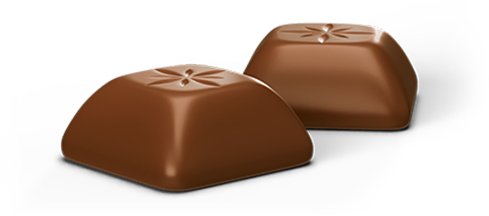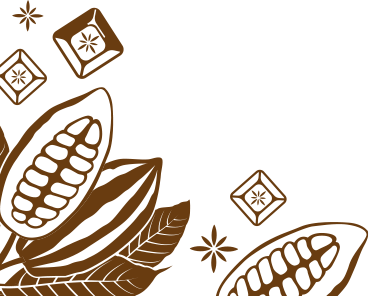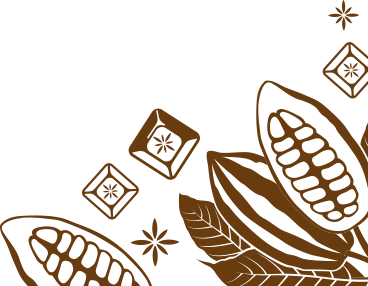Schogetten—Raw Materials
Taking responsibility for sustainability is especially important with respect to raw materials that come to us from faraway countries. Of these, cocoa is one of the most important ingredients for Schogetten because, of course, it is the basis for chocolate.
Palm oil is also an issue. When we use palm oil, we use 100% certified sustainable cultivation.
Cocoa farming
Many cocoa farmers are facing the challenge of switching to more sustainable farming methods due to low incomes. Low cocoa prices and low yields often mean that they farm their land inefficiently. This is why a stronger commitment to greater sustainability in cocoa cultivation is particularly important.
Our commitment to sustainable cocoa sourcing
1. We are a founding member of the Forum Nachhaltiger Kakao e. V. (Sustainable Cocoa Forum).
2. We are a member of the Association of the German Confectionery Industry (BDSI) and support the Foundation of the German Cocoa and Chocolate Industry.
1. What the Sustainable Cocoa Forum does
As a founding member of the Forum Nachhaltiger Kakao e. V. (Sustainable Cocoa Forum), we are committed to fighting abuse in the cocoa industry. The forum aims to improve the living conditions of cocoa farmers and their families, conserve natural resources and biodiversity in the countries of origin, and expand the cultivation and marketing of cocoa certified according to sustainability standards.

2. Commitment with other German institutions
We are a long-standing member of the Association of the German Confectionery Industry (BDSI) and support the Foundation of the German Cocoa and Chocolate Industry through it. These two institutions actively work to make cocoa cultivation more sustainable. Their specific funding and research programs focus on West Africa. Measures include assistance for cocoa farmers in land use by providing them with the appropriate required documentation for their land use rights. This program is implemented in cooperation with the Deutsche Gesellschaft für Internationale Zusammenarbeit (German Society for International Cooperation – GIZ), a federal company active in international development cooperation.
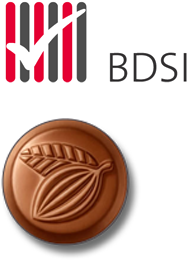
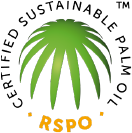
4-0146-11-100-00
Our commitment to sustainably grown palm oil
We only use RSPO-certified palm oil, which has been grown sustainably and meets the higher “segregated” level. RSPO stands for “Roundtable on Sustainable Palm Oil”, which is the world’s most important initiative for the promotion of sustainable palm oil cultivation. No valuable primeval forests are cleared for this palm oil, meaning that unique habitats for plants and animals are preserved. Palm oil of the higher “segregated” certification level is strictly separated from non-certified palm oil so that no mixing occurs at any point throughout the production and supply chain. You can find more information at rspo.org
